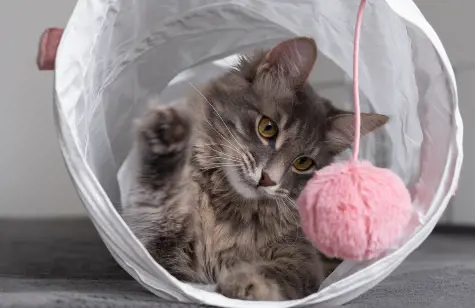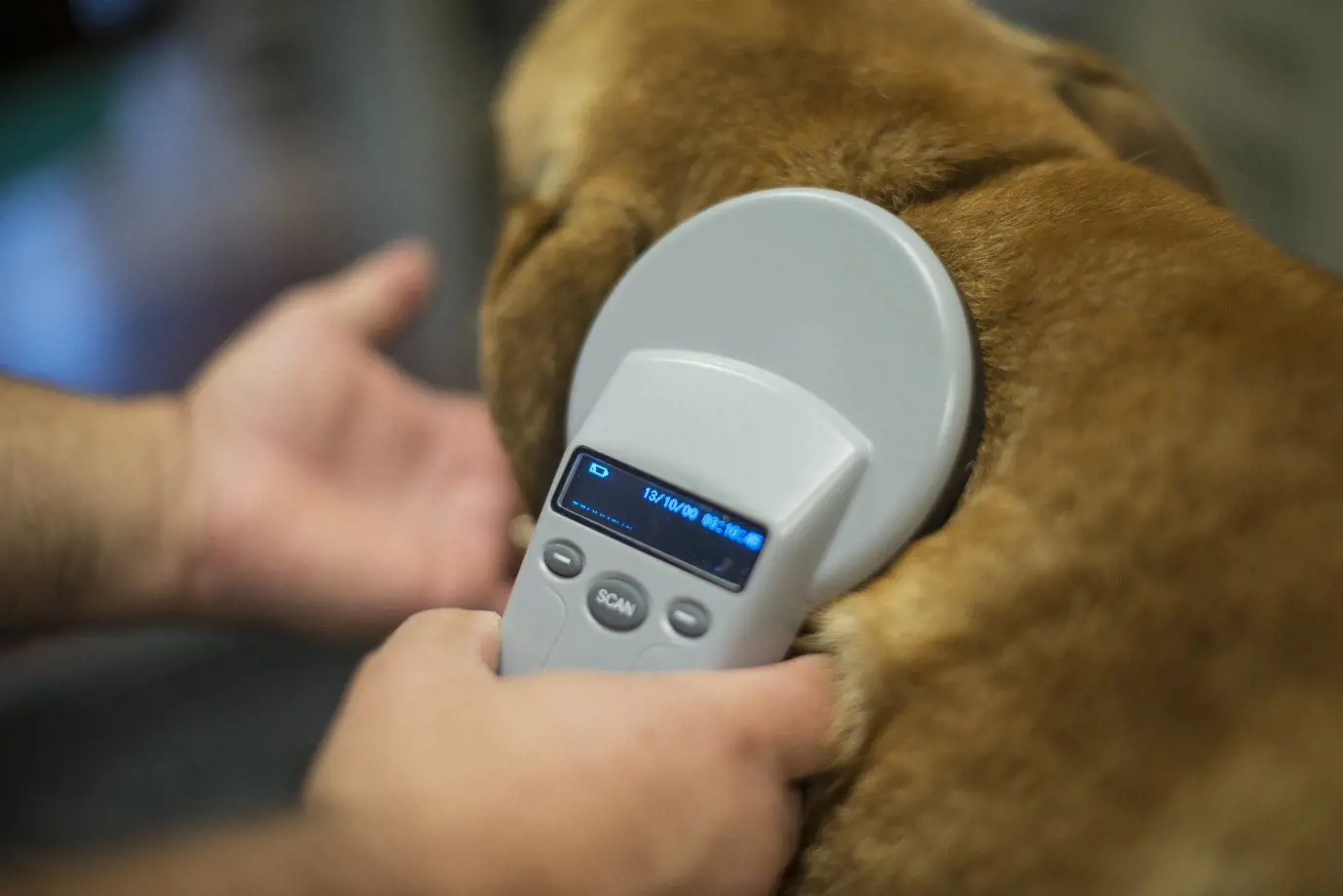How to help a teething kitten
22nd April, 2024

As your kittens' baby teeth start to grow, they may experience discomfort and urge to chew on everything in sight. But don't worry, there are several ways on how to help a teething kitten. One of the best ways is to provide them with chew toys designed for teething kittens.
Another method is to feed them with wet food which is easier for them to eat. Remember to keep an eye on your kitten during this period, and if they seem excessively uncomfortable or refuse to eat, it might be time for a trip to the vet.
Understanding the teething process
If your kitten is teething, it is important to understand the teething process. Going through the teething stages can be a challenging time for both the kitten and the owner. The teething process usually starts around three to four months of age and can last until the kitten is six to eight months old. During this time, the kitten's baby teeth start to fall out, making way for the permanent adult teeth.
There are a few signs of kitten teething to look out for during the teething process. Your kitten may experience increased drooling, irritability, and a strong urge to chew on objects.
You may also notice that their gums are swollen, and they may have bad breath. It is important to be patient and understanding during this time, as your kitten may be experiencing discomfort and pain.
Kitten teething toys
To help your teething kitten, provide them with appropriate chew toys. Choosing safe toys is crucial to ensure your kitten's safety and prevent any potential harm. Look for toys that are specifically designed for teething kittens, made of durable materials that can withstand their sharp teeth. Avoid toys with small parts or strings that can be easily swallowed, as they can pose a choking hazard.
Supervising playtime is essential when it comes to teething kittens. Keep an eye on your kitten while they are playing with their chew toys to ensure they are using them safely. This will allow you to intervene if necessary and prevent any accidents.
Remember to wash their toys regularly to maintain cleanliness and hygiene. Use a mild soap and warm water to clean the toys and inspect them for any signs of damage.
Cooling techniques to soothe irritated gums
Try using chilled teething toys or a damp cloth to provide relief to your teething kitten's gums. Cold compresses can help soothe the discomfort caused by teething and reduce inflammation.
You can use a small washcloth soaked in cold water and then placed in the freezer for a few minutes. Once chilled, give it to your kitten to chew on. The coolness will numb the gums and provide temporary relief.
Remember to always monitor your kitten while they are using any cold compress or teething toy to ensure their safety. If your kitten seems to be in severe pain or their teething symptoms persist for an extended period of time, it is best to consult with a veterinarian for further guidance.
Consider cat insurance for your kitten
Our feline friends are adventurous and curious, often leading them into unpredictable situations. While we love their adventurous spirit, it can also lead to unexpected illnesses or accidents.
To get a cat insurance quote for your furry friend you can get a quote through our website by clicking here. If you would like to talk to one of our cat insurance team, you can get in touch with us on 0330 102 5748.
Incorporating wet food into their diet
To help provide additional relief to your teething kitten's gums, consider incorporating wet food into their diet. Wet food has a soft and moist texture that can be easier for your kitten to chew and swallow, reducing any discomfort they may be experiencing. It also helps to keep them hydrated, which is important during the teething process.
When introducing wet food, it is important to do it gradually. Start by mixing a small amount of wet food with their current dry food, gradually increasing the proportion of wet food over time. This will help your kitten transition to a diet that includes both wet and dry food.
Using natural remedies for pain relief

For natural pain relief for your teething kitten, consider using herbal remedies. Herbal remedies can provide relief for your kitten's sore and bleeding gums, and help reduce their discomfort during the teething process.
Additionally, teething rings made specifically for kittens can be a helpful natural remedy. These rings are designed to be chewed on and can provide gentle pressure on your kitten's gums, relieving some of their discomfort.
Remember to always supervise your kitten while they are using teething rings to ensure their safety. By incorporating these herbal remedies and teething rings into your kitten's routine, you can help alleviate their pain and make the teething process more comfortable for them.
Maintaining good oral hygiene
Maintaining good oral hygiene is essential for ensuring your teething kitten's dental health. By taking proper care of your kitten's teeth, you can help prevent dental issues and keep their mouth clean and healthy. Here are two important tips to help you maintain good oral hygiene for your teething kitten:
- Dental check up: Regular dental check up with a veterinarian are crucial for monitoring your kitten's oral health. A professional dental examination can detect any dental issues early on and prevent them from becoming more serious. Your veterinarian may also recommend professional teeth cleaning to remove stubborn tartar.
- Healthy diet: Feeding your kitten a balanced diet that includes dental-friendly foods can contribute to their oral hygiene. Dry kibble acts as a natural toothbrush, helping to clean their teeth as they chew. Avoid feeding your kitten sticky or sugary treats that can stick to their teeth and promote plaque formation.
Minimising stress and discomfort
Kittens start teething typically around 3 to 4 months of age and can last for 6 months. To minimise their stress and discomfort, creating a calm and soothing environment can also help your teething kitten relax.
Providing a warm and cosy space for them to rest, along with gentle playtime and plenty of affection, can go a long way in minimising their stress.
Conclusion
By understanding the teething process and providing appropriate chew toys, cooling techniques, wet food, natural remedies, and maintaining good oral hygiene, you can help alleviate their discomfort. Remember to minimise stress and seek professional advice if needed.
Key takeaways
- Choose appropriate chew toys designed for teething kittens with a soft texture and avoid toys that are too hard or small.
- Use cooling techniques such as chilled teething toys, damp cloth, or cold compresses to soothe the kitten's gums.
- Incorporate wet food into the kitten's diet as it has a soft texture that is easier to chew and swallow.
- Consider using natural remedies like catnip, and teething rings to provide pain relief for the teething kitten.
Frequently asked questions
Can teething kittens use human teething toys?
Teething kittens may have a desire to chew, but it's important to provide appropriate toys. While human teething toys may seem tempting, they are not designed for kittens and could potentially harm them.
How long does the teething process typically last in kittens?
Teething in kittens can be a challenging time. On average, the kitten teeth teething process typically lasts around 6 months. During this time, you may notice signs such as increased chewing and discomfort.
Can I give my teething kitten frozen fruits or vegetables to chew on?
You can give your teething kitten frozen fruits or vegetables to chew on, but be cautious. It's essential to choose safe alternatives to prevent choking or digestive issues. Consider using soft food or specially designed chew toys for teething kittens instead.
Can teething kittens benefit from over-the-counter pain relievers?
Teething kittens may benefit from over-the-counter pain relievers, but it's important to consult with a vet first. There are also natural teething remedies, like frozen washcloths or teething toys, that can provide relief.
Helpful Pages
Recent Posts
Pet Insurance Quote
- 98% claims paid *
- Claims paid directly to vets
- 24/7 vet video consultations
- Interest free monthly payments




